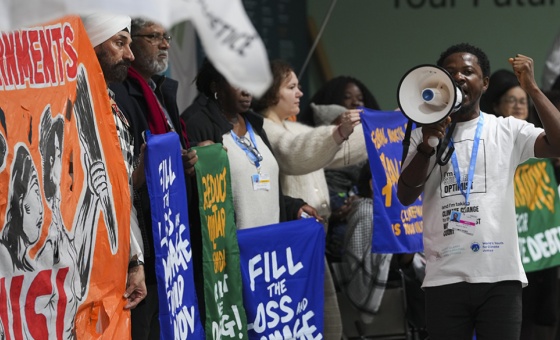This is the last article you can read this month
You can read more article this month
You can read more articles this month
Sorry your limit is up for this month
Reset on:
Please help support the Morning Star by subscribing here
IRANIAN President Ebrahim Raisi and Foreign Minister Hossein Amirabdollahian were found dead today after their helicopter crashed in a foggy mountain region.
The deaths come amid tensions in the wider Middle East, with Iran and Israel exchanging drone and missile attacks.
All eight people aboard the helicopter died in the crash including the governor of Iran’s East Azerbaijan province, a senior cleric from Tabriz, a Revolutionary Guard official and three crew members.
The group were heading to Tabriz, a city in the north-west of Iran, after returning from a dam opening ceremony on the Azerbaijan border.
Iran’s Supreme Leader Ayatollah Ali Khamenei quickly replaced Mr Raisi with the country’s vice-president as caretaker and insisted that the government was in control.
An election for a new president is due to take place in the next 50 days.
No explanation was immediately offered for the cause of the crash and Iran did not comment on the possibility of sabotage.
The helicopter was purchased by Iran in the early 2000s, with spare parts in short supply due to Western sanctions.
Mr Raisi was viewed as a protege of the ayatollah in a government which has faced years of mass protests over the degrading of the country’s economy and women’s rights.
The latest mass protests ignited last year following the death of Mahsa Amini, who died in custody after being detained for not wearing a headscarf properly.
Indian Prime Minister Narendra Modi, Russian President Vladimir Putin, Turkish President Recep Tayyip Erdogan, China’s Xi Jinping and Syrian President Bashar Assad were among those to offer condolences.
Protesters from the National Council of Resistance of Iran gathered outside the Iranian embassy in Berlin following the announcement of Mr Raisi’s death, holding placards showing his face crossed out in red.
New York-based Centre for Human Rights in Iran described Mr Raisi’s presidency as seeing “a stunning escalation of state repression and violence against peaceful dissent in Iran.”
“Raisi presided over a country suffocated by a regime that fears its own people,” said executive director Hadi Ghaemi.
“He was merely one boot on the necks of the Iranian people; others can easily take his place.”
Following the end of Iran’s war with Iraq in 1988, Mr Raisi served on “death commissions,” which handed down death sentences for political prisoners, militants and others.
As many as 5,000 people were executed, according to estimates.











